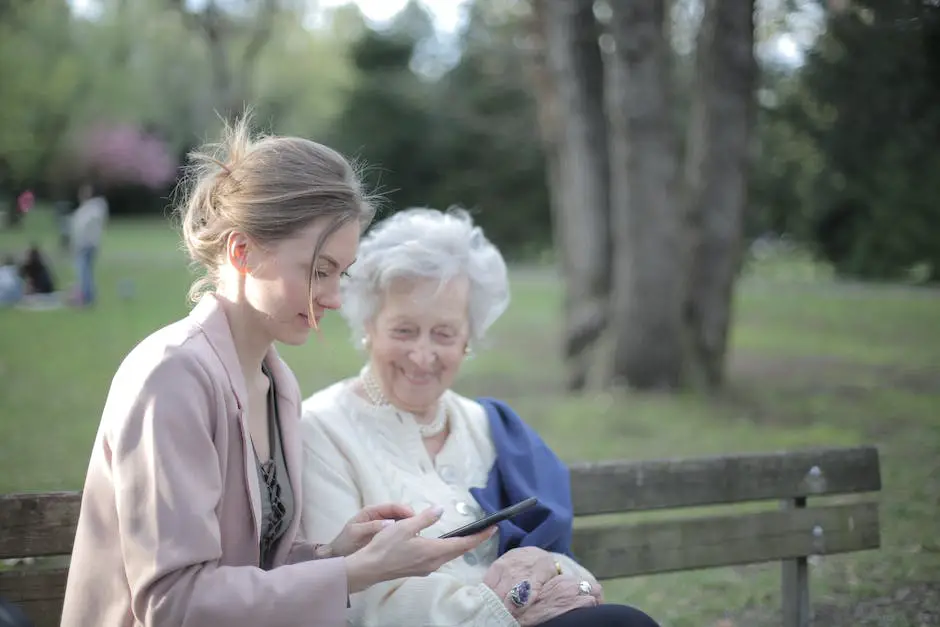Over the course of our lives, relationships of all kinds are an intrinsic part of the human experience. They are complex in nature, delightful and enriching, yet not without their troubles. Discrepancies and misunderstandings can escalate, resulting in a crack, or in worse circumstances, a break in the bond we share. However, the beauty of relationships is their resilience, their elasticity and potential for repair. It may seem daunting, but the journey towards reconciliation, if navigated properly, can breathe new life into a fractured relationship, ultimately making it stronger. This is achieved by a thorough understanding of the conflict, effective communication, and seeking external assistance when necessary.
Understanding the Problem
Title: Unraveling the Thread: What Actually Led to the Broken Relationship?
Dear ones,
The labyrinth of human emotions could indeed be overwhelming, right? A path where the sun shines beautifully one moment, followed by unwelcome storms the next. It is a voyage every person undertakes – filled with love, laughter, disappointments, frustrations, and sometimes, unfortunately, broken relationships.
Understanding what actually leads to the breakage of relationships might seem complex. However, establishing strong bonds signifies the cornerstone of a warm and loving family, an area where everyone feels valued and significant. Just like patching up that favorite teddy bear or mending a broken spoon, a relationship can also be lovingly restored with a little effort, dedication, and understanding.
- Lack Of Communication: This can be a silent relationship killer. Sharing feelings, thoughts, and ideas creates a sense of togetherness and understanding. Conversely, hiding emotions, withholding feelings, or not sharing important information tends to create an unnecessary gap. Making time to genuinely communicate is crucial for maintaining relationships.
- Failing to Resolve Conflicts: Disagreements are a common facet of any relationship. When these conflicts are not addressed properly, they accumulate, leading to resentment and further conflicts. Conflict resolution can effectively stop a small disagreement from becoming a jumbled mess of hurt and misunderstanding.
- Changing Priorities: Both individuals and families evolve over time – and that’s completely normal. New jobs, the birth of a child, or even shifting to a new city can drastically alter priorities. If changes are not communicated and understood empathetically, misalignments can emerge and strain the relationship.
- Lack of Mutual Respect: Respect forms the basis of any loving relationship. Discourtesy, criticism, or lack of appreciation can erode that foundation. Always keep in mind the golden rule – treat your loved ones the way you’d like to be treated!
- Not Spending Quality Time Together: Time is love spelled differently. Neglecting to spend quality time can make one feel ignored or ostracized. Pencil in valuable ‘family time’ in your daily schedule. Indulge in enjoyable activities that help to reinforce bonds and create lasting memories.
- Failing to Nurture the Relationship: Just like a flower, relationships also need adequate nourishment to bloom beautifully. This includes expressing love, showing affection, and supporting one another emotionally.
Remember, dear readers, relationships are not about winning; they are about understanding, growing together, and embracing the art of compromise. Like threads of a majestic tapestry, relationships need to be carefully woven and attentively maintained. Broken? Yes, sometimes. But with love, respect, and understanding as our tools, we can always sew a seam far stronger than the original thread.
Stay loving and stay beautiful! Let’s continue to build our family dynamics brick by brick, filling every nook with love, laughter, and undying understanding. Cheers!

Effective Communication
The Healing Power of Effective Communication in Family Relationships
If the foundation of a relationship has been ruptured, it’s easy to feel overwhelmed. Despite the complex nature of this issue, remember: huge oak trees grow from tiny acorns. In the same vein, mending relationships often begin with a single, powerful tool, effective communication.
Hard as it might be, communication serves as an avenue to vent out feelings and thoughts, thereby preventing misunderstandings. Start by creating a safe, open environment where everyone feels comfortable expressing their feelings. Once this is established, conversations will flow more freely and become more productive.
Select a convenient time and a conducive location for these conversations. This would reduce distractions and ensure the attention of all parties involved. Be clear, cohesive and concise with your words and expressions. It’s important to express your feelings with honesty, bearing in mind not to blame or criticize the other person.
Active listening is another cornerstone of effective communication. This involves not just hearing words, but seeking to understand their deeper meanings. Show respect for the speaker by nodding in agreement, maintaining eye contact, or even repeating their sentiments in your own words to affirm your understanding. This fosters a sense of respect, guaranteed to boost the confidence of the speaker while fostering an environment for open communication.
Moreover, utilizing ‘I’ statements instead of ‘You’ statements help to ensure honesty without coming off as offensive or accusatory. Saying, “I feel upset…” rather than “You made me upset…” removes the shadow of blame, and introduces an empathetic perspective to the conversation.
Responding, rather than reacting, is yet another communicative masterstroke. Instead of going on the defensive, it’s important to stay calm, take time to form a measured response, and communicate it effectively. This helps to reduce the potential for further conflict.
Possessing emotional intelligence and the ability to control your own emotions paves the path to effective communication too. Undeniably, emotions run high in instances of conflict. However, keeping them in check allows room for rationality, constructive discussions, and ultimately, resolution.
Communication is a two-way street. It’s not about who wins or loses an argument, but rather, finding a middle ground to resolve issues. Compromising and expressing forgiveness play vital roles in this journey towards reconciliation. It shows the willingness of both parties to put in the effort required to heal the relationship.
Implementing these effective communication strategies might seem daunting at first glance. But remember, every journey starts with a single step. Progress may be slow, but patience and perseverance will undoubtedly pay off in time.
In times of broken relationships, effective communication serves as a lifeline, hauling the relationship back from the brink of disaster towards a healthier, happier state. So, take the plunge – start implementing these communication tactics today and witness a remarkable transformation in your relationships tomorrow.

Seeking External Help
Navigating Broken Relationships: When to Seek External Help
In the complex web of life, interpersonal relationships inevitably face disruptions and setbacks. After working on communication, navigating conflicts, managing shifting priorities, and investing time and effort into nurturing the relationship, it may still feel like things aren’t moving in the right direction. This can be the case in any type of relationship, may it be between spouses, friends, siblings, or parents and children.
Every relationship has its high and low tides, but if it feels as if the sea is continually stormy and the shores are nowhere in sight, it might be time to take up an oar in the form of external help. The following situations provide a roadmap to understanding when professional assistance might be beneficial.
- Persisting Emotional Distress: If interactions with a loved one constantly leave one or both parties feeling drained, stressed, upset, or hopeless, there might be deeper underlying issues needing professional aid. Mental health should never be compromised in any relationship.
- Developing Destructive Behaviors: Repeated encounters in a troubled relationship sometimes trigger problematic behaviors like substance abuse, anxiety, depression, and eating disorders. An intervention from a therapist could circumvent these damaging developments.
- Existence of Abuse: In situations involving any form of physical, emotional, or psychological abuse, it’s imperative to seek professional help immediately. Expert advice and intervention can chart the course to safety and recovery.
- Reaching Stalemate: If mutual efforts have been made but it feels like continuous walks into a dead-end, third-party assistance can be beneficial. They offer an objective viewpoint, can suggest fresh solutions and can facilitate unbiased, open dialogues to break down any walls.
- Lost Sense of Identity: When individuals feel like they are losing themselves in the relationship, it’s crucial to seek external assistance. A professional can aid in bringing clarity and discovery back to personal identity and self-worth.
- Desire for Separation or Divorce: In a marriage, if thoughts of separation or divorce persist, consider seeking help from a marriage counselor. They can provide the necessary guidance to explore all potential paths and to make the decision that’s best for all involved.
Undeniably, seeking external help carries a certain stigma. It might feel like admitting defeat, but it’s crucial to remember that it’s not a sign of weakness but an exhibit of strength and courage. It’s about prioritizing mental and emotional wellness over societal norms. Since relationships are foundational to family structure, tending to their health indirectly tends to the overall well-being of the family. Inviting a professional into the realm of personal relationships opens doors for healing, growth, and enhanced understanding, benefiting familial bonds in the long run.
Due to the relatable, yet sensitive nature of separating or mending relationships, please know that while this isn’t a comprehensive advice guide, it serves as a stepping stone in the journey of understanding and decision-making. Seek professional counsel where needed, as every situation is unique. Just remember, it’s okay to ask for help!

The path toward repairing a broken relationship demands courage, humility, and abundant patience. It’s not simply about saying ‘I’m sorry’ or ‘I forgive you’. It’s about delving deep into the very core of the problems, building bridges of communication that are vibrant and robust, and being humble enough to seek the wisdom of external advice when needed. Although strenuous and sometimes painful, the process can lead to the resolution, strengthening and ultimately the deepening of the relationship. It is essential remember that every relationship is significant, and well worth the effort to mend. The path will not always be lighted, but the strength of your bond can be seen shining at the end of that tunnel if you’re willing to walk through it.

